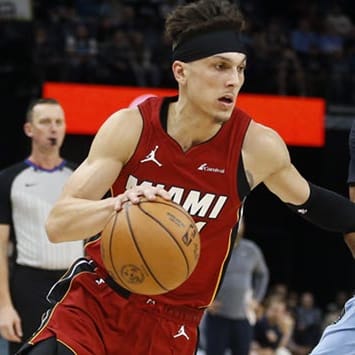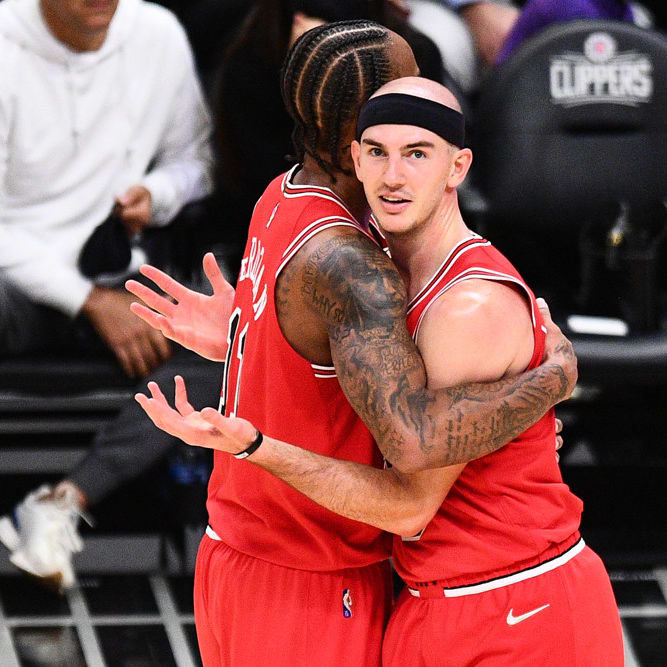This article is part of our NBA Draft Kit series.
Separating players into tiers is a popular method of draft prep, and it de-emphasizes the idea that you must draft a player because his projections come out slightly more favorably than those of another player. Often, the difference between a player ranked, say, 30th and a player ranked 45th is smaller than you think.
Tiers help account for those discrepancies by grouping together players with similar risk/reward profiles, empowering the fantasy owner to make the choice for themselves.
Some notes on methodology:
- Tiers take into account players with top-120 upside. Essentially, players that could reasonably come off the board in a standard draft.
- Players within tiers are not ranked in a specific order. Ideally, everyone in a tier has an argument to be taken over anyone else in that tier.
- Plenty of players are multi-position eligible, but to avoid confusion and redundancy, each player only appears at what we assume to be their primary position
- Tiers are based on 8-category, rotisserie scoring
Tier 1: First-round Superstar
 Stephen Curry, Warriors
Stephen Curry, Warriors
Curry is coming off of his sixth All-NBA selection, and he continues to assert himself as one of the best shooters of all time. This season is especially interesting, as Curry will almost certainly see his usage increase with the departure of Kevin Durant and injury to Klay Thompson. While he's had some injury concerns of his own across the past two seasons, Curry remains among the elite fantasy assets when healthy and is worthy of a top-five selection
Separating players into tiers is a popular method of draft prep, and it de-emphasizes the idea that you must draft a player because his projections come out slightly more favorably than those of another player. Often, the difference between a player ranked, say, 30th and a player ranked 45th is smaller than you think.
Tiers help account for those discrepancies by grouping together players with similar risk/reward profiles, empowering the fantasy owner to make the choice for themselves.
Some notes on methodology:
- Tiers take into account players with top-120 upside. Essentially, players that could reasonably come off the board in a standard draft.
- Players within tiers are not ranked in a specific order. Ideally, everyone in a tier has an argument to be taken over anyone else in that tier.
- Plenty of players are multi-position eligible, but to avoid confusion and redundancy, each player only appears at what we assume to be their primary position
- Tiers are based on 8-category, rotisserie scoring
Tier 1: First-round Superstar
 Stephen Curry, Warriors
Stephen Curry, Warriors
Curry is coming off of his sixth All-NBA selection, and he continues to assert himself as one of the best shooters of all time. This season is especially interesting, as Curry will almost certainly see his usage increase with the departure of Kevin Durant and injury to Klay Thompson. While he's had some injury concerns of his own across the past two seasons, Curry remains among the elite fantasy assets when healthy and is worthy of a top-five selection in most formats.
Tier 2: Borderline-elite Star
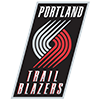 Damian Lillard, Trail Blazers
Damian Lillard, Trail Blazers
Lillard is coming off of a run to the Western Conference Finals in a year when he posted career highs in field-goal percentage (44.4) and assists per game (6.9). Heading into 2019-20, Lillard may need to carry the Blazers' offense more than ever, but he'll have C.J. McCollum by his side, as well as a new addition at center in Hassan Whiteside. Fantasy owners can always rely on Lillard's scoring and three-point production, but he's also shot at least 90 percent from the line and added at least 1.0 steals per game over the last two seasons.
Tier 3: High-end Stars
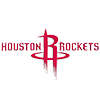 Russell Westbrook, Rockets
Russell Westbrook, Rockets
With both Westbrook and James Harden making a career out of ball-dominant styles, it's right for fantasy owners to wonder how the reunion situation will affect Westbrook's role and, as a result, his statistics. As was the case with Harden and Chris Paul, Mike D'Antoni will likely stagger Westbrook and Harden as much as possible, so it would be surprising if Westbrook's production tails off significantly. Slight drops in counting stats may be inevitable, but the far bigger concern for fantasy purposes is Westbrook's waning efficiency at the line and from beyond the arc in recent years.
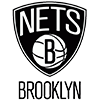 Kyrie Irving, Nets
Kyrie Irving, Nets
Chemistry issues aside, Irving performed as well as he ever has on the court last season, posting career-bests in assists, rebounds, steals and blocks per game. In Brooklyn, Irving will step in as the engine of the Nets' offense, and with Kevin Durant sidelined, he'll have a good chance to finish in the top 10 in the league in usage rate for the fourth time in nine years. Irving does carry durability concerns, however, and fantasy owners have come to expect 10-to-15 absences per season as the norm.
 Kemba Walker, Celtics
Kemba Walker, Celtics
With the Celtics, Walker is now on a roster with significantly more skill and depth compared to last year's Hornets. The presence of Jayson Tatum, Jaylen Brown, Enes Kanter and Gordon Hayward could mean fewer points, but perhaps more assists and more efficient shooting percentages for the veteran point guard. Overall, Walker doesn't have the sky-high ceiling of some of his point guard peers, but he's a high-floor veteran who doesn't carry the same durability concerns as Curry, Irving or Chris Paul.
Tier 4: High-potential Starters
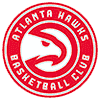 Trae Young, Hawks
Trae Young, Hawks
Expectations are growing for Young and the Hawks heading into the 2019-20 season, as the point guard is coming off a stellar second half of his rookie campaign. In his final 23 games, Young averaged 24.7 points, 9.2 assists and 4.7 rebounds across 33.1 minutes per game. His 30.8 percent usage rate after the All-Star break ranked in the top 10 among all eligible NBA players. With a full summer of development, and the potential for a larger workload (30.9 MPG last season), Young could certainly make the leap into Tier 3 by season's end.
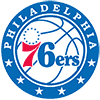 Ben Simmons, 76ers
Ben Simmons, 76ers
While Simmons didn't make much of an improvement from Year 1 to Year 2, he's already one of the best passers in the NBA and a dynamic finisher around the basket and in transition. That gives him a high floor moving forward, even if the fit between he and Joel Embiid is less than ideal. Heading into 2019-20, fantasy owners should not expect Simmons to develop a reliable jumper (he was 2-for-25 from beyond 15 feet last season), but rather view that possibility as a bonus. Even if his shooting continues to lag behind, Simmons' high field goal percentage and elite counting-stat contributions make him a productive fantasy option.
Tier 5: High-level Starters
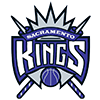 De'Aaron Fox, Kings
De'Aaron Fox, Kings
After an underwhelming first season in which he failed to make an All-Rookie team, Fox made a major leap as a sophomore. He ranked fourth in total assists (590) and sixth in steals (133) last season, while also averaging 17.3 points and 3.8 rebounds per game. The area in which Fox can still grow is his scoring. If he can increase his free-throw percentage (72.7%) and find a way to launch more threes (1.1 makes per game at 37.1%), he'll be among the best values on draft day.
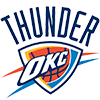 Chris Paul, Thunder
Chris Paul, Thunder
Heading into his age-34 season, Paul is coming off arguably the least-productive year of his professional career. But as he moves on to Oklahoma City, the eight-time All-NBA point guard will be in line for his biggest role since leaving the Clippers. Fantasy owners must take into consideration Paul's injury history and age before drafting him, but it's possible we see his assist numbers tick up significantly in what could be a bounceback season.
Tier 6: Upper-mid-level Starters
 Mike Conley, Grizzlies
Mike Conley, Grizzlies
Conley will bring in a much-needed veteran point guard presence to the Jazz. Last season, Conley posted a career-best 21.1 points per game, while playing at least 70 games for the first time since 2014-15. But it's likely Conley's role will be reduced in Utah, as he joins a significantly more talented team that's won at least 50 games in two of the past three seasons. His injury history is worth considering, as well, as Conley is averaging 55.4 games played over the past five seasons.
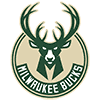 Eric Bledsoe, Bucks
Eric Bledsoe, Bucks
In addition to being selected to the All-Defensive team, Bledsoe also set a career high in field-goal percentage (48.4) while averaging 15.9 points, 5.5 assists and 4.6 rebounds in 29.1 minutes last season. Bledsoe's upside is somewhat capped given the presence of Giannis Antetokounmpo, but the point guard could be relied upon more this season after the departure of Malcolm Brogdon. He may not be the guy you want running your team come playoff time, but Bledsoe was among the more underrated fantasy point guards in 2018-19.
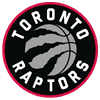 Kyle Lowry, Raptors
Kyle Lowry, Raptors
It shouldn't be surprising that last season Lowry averaged his fewest points per game (14.2) since 2010-11, as the point guard was joined by a ball-dominant scorer in Kawhi Leonard for the Raptors' championship run. Now, entering his 14th NBA season, not only is Leonard gone, but so is sharpshooter Danny Green. As a result, Lowry may once again have to shoulder a larger offensive burden at 33 years old. He's missed at least 17 games in two of the last three seasons, but Lowry remains a high-volume three-point producer, as well as an excellent source of assists and steals.
 Jamal Murray, Nuggets
Jamal Murray, Nuggets
Murray managed career-high averages in points (18.2), assists (4.8) and rebounds (4.2) last season. Denver's offense will continue to run through Nikola Jokic, but the steady Murray (82, 81 and 75 games played over his first three seasons) remains the clear second option behind one of the most pass-happy stars in the league.
Tier 7: Mid-level Starters
 Lonzo Ball, Pelicans
Lonzo Ball, Pelicans
Ball once again struggled to remain healthy during the 2018-19 campaign, appearing in just 47 games for the Lakers. As was the case during his rookie season, Ball showed flashes of elite passing and defensive ability, but he was inconsistent as a shooter and got to the free throw line at an alarmingly low rate. A change of scenery should be good for the UCLA product, and the Pelicans figure to give him every opportunity to grab hold of a starting backcourt spot alongside Jrue Holiday.
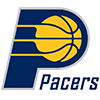 Malcolm Brogdon, Pacers
Malcolm Brogdon, Pacers
Brogdon joined the elite 50/40/90 club last season while posting career highs in points (15.6), rebounds (4.5) and threes (1.6). He will need to showcase his ability as a primary offensive option more often this season, as Indiana will be without Victor Oladipo (knee) until December or January. Whether Brogdon can transition into a bigger role is one question, but whether he can stay healthy is another. Through his first three seasons, Brogdon is averaging just 62.3 games played.
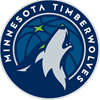 Jeff Teague, Timberwolves
Jeff Teague, Timberwolves
A model of consistency and relatively good health for the majority of his career, Teague endured a somewhat atypical campaign last season. To begin with, he suited up for a career-low 42 games as a result of ankle and foot issues. He also averaged his fewest points per game in nearly a decade. On a more positive note, the veteran did dish out a career-best 8.2 assists per contest. A resurgent season alongside Karl-Anthony Towns is very much conceivable if Teague can avoid the injury bug.
 Ricky Rubio, Suns
Ricky Rubio, Suns
While he took a step in the right direction as a scorer and passer last season, Rubio's shooting percentages waned, and he also notched career-lows in rebounds (3.6) and steals (1.3). Though he will join another a high-usage two-guard in Devin Booker, it's possible that Rubio is given the keys to run the offense and play a more traditional point guard role, as he did for the Timberwolves. Still, the Spaniard is an odd fit in Phoenix, and his unreliable jumper could pose a major issue.
 Ja Morant, Grizzlies
Ja Morant, Grizzlies
A consensus All-American and the No. 2 pick in June's draft, Morant averaged 24.5 points, 10.0 assists, 5.7 rebounds and 1.8 steals across 36.6 minutes last year at Murray State. Rookie point guards tend to struggle with efficiency, but fantasy owners should be confident that the rookie will play a major role from Day 1 in Memphis. In terms of upside, Morant could be this year's version of Trae Young.
 Shai Gilgeous-Alexander, Thunder
Shai Gilgeous-Alexander, Thunder
Though Gilgeous-Alexander is likely start the season at shooting guard opposite Chris Paul, Paul's inability to stay healthy -- or a possible trade -- may thrust Gilgeous-Alexander into the point guard role at some point, which would increase his value. Either way, expect the second-year guard to take on a prominent role for the rebuilding Thunder following an impressive rookie campaign in Los Angeles. The Kentucky product isn't a volume scorer, but he's already an efficient shooter who adds value on the defensive end (1.7 combined blocks/steals).
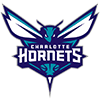 Terry Rozier, Hornets
Terry Rozier, Hornets
After signing with the Hornets in free agency, Rozier will go from backup in Boston to the focal point of a rebuilding franchise. In 30 career games as a starter, the 25-year-old has averaged 14.4 points, 5.9 rebounds, 5.1 assists and 1.4 steals. While he likely won't turn into a great passer or efficient scorer overnight, fantasy owners can look toward Rozier as an above-average rebounder at the point guard spot, plus a solid source of threes and steals. The question is whether Rozier will continue to kill fantasy owners in the field goal percentage category.
Tier 8: Low-level Starters
 Spencer Dinwiddie, Nets
Spencer Dinwiddie, Nets
Dinwiddie's production continued to ascend during his third year with the Nets. He took a more aggressive offensive approach in 2018-19, scoring a career-high 16.8 points to go along with 4.6 assists and 2.4 rebounds per game. Dinwiddie showed enough last season to warrant similar playing time in 2019-20, and he'll likely remain the Nets' sixth man after they swapped out D'Angelo Russell for Kyrie Irving.
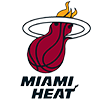 Goran Dragic, Heat
Goran Dragic, Heat
A knee injury forced Dragic to play the fewest games of his career (36) last season. While there is hope for a more efficient and productive 2019-20, the arrival of superstar Jimmy Butler could limit Dragic's usage. Still, when healthy, Dragic has proven to be a capable source of scoring, assists and three-point shooting throughout his career. Butler caps his upside, but it's fair to expect Dragic to return to his usual form this season.
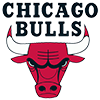 Tomas Satoransky, Bulls
Tomas Satoransky, Bulls
Satoransky's role truly opened up once John Wall was lost due to injury, and he averaged 10.7 points, 6.2 assists, 4.3 rebounds and 1.1 steals as a starter. But Washington decided to move on from Satoransky during the offseason, and he'll now step in as the presumed starter in Chicago. The 27-year-old could share time with Kris Dunn and rookie Coby White, but if the Bulls are serious about contending for a playoff spot, it's Satoransky who will get the lion's share of the minutes.
 Fred VanVleet, Raptors
Fred VanVleet, Raptors
VanVleet is coming off of a career year with the Raptors in which he averaged double-digit points for the first time, scoring 11.0 per game to go along with 4.8 assists, 2.6 rebounds and 1.8 threes. After a strong showing in the postseason, it's possible VanVleet's role with Toronto progresses to that of a starter in his fourth year, especially given the departures of Kawhi Leonard and Danny Green. Whether that's the case or not, VanVleet will be counted on for more production this season.
Other players to monitor
Reggie Jackson, Pistons; Derrick White, Spurs; Ish Smith, Wizards; Collin Sexton, Cavaliers; Dejounte Murray, Spurs; Rajon Rondo, Lakers; Patrick Beverley, Clippers; Delon Wright, Mavericks; D.J. Augustin, Magic; Darius Garland, Cavaliers; Elfrid Payton, Knicks; Dennis Smith, Knicks; Derrick Rose, Pistons; Jordan Clarkson, Cavaliers







